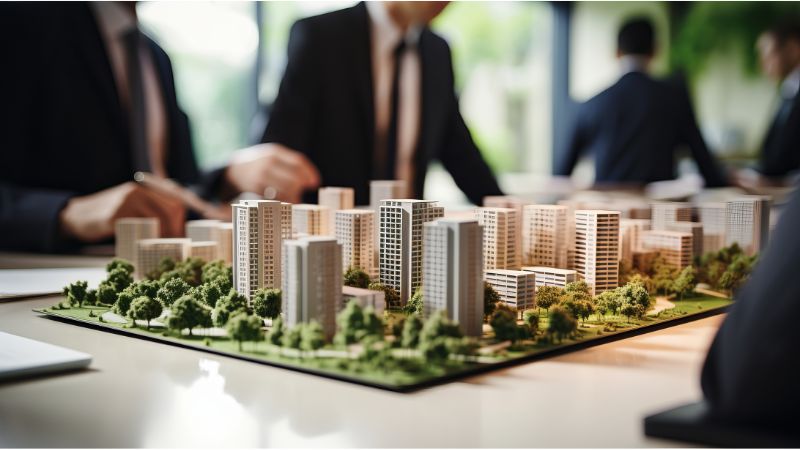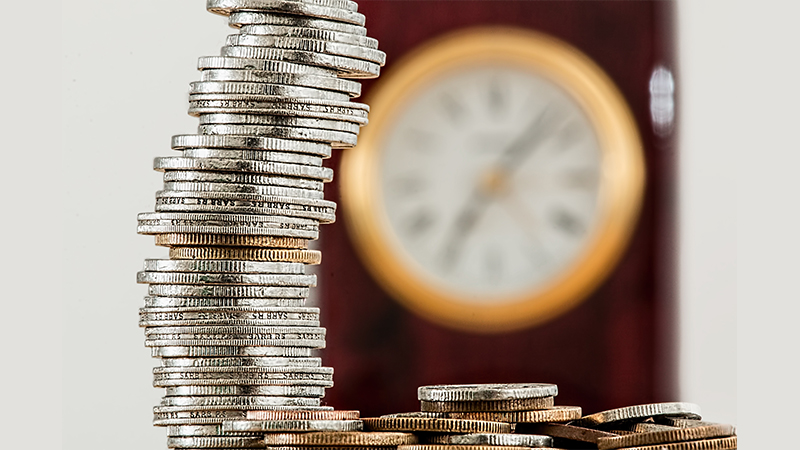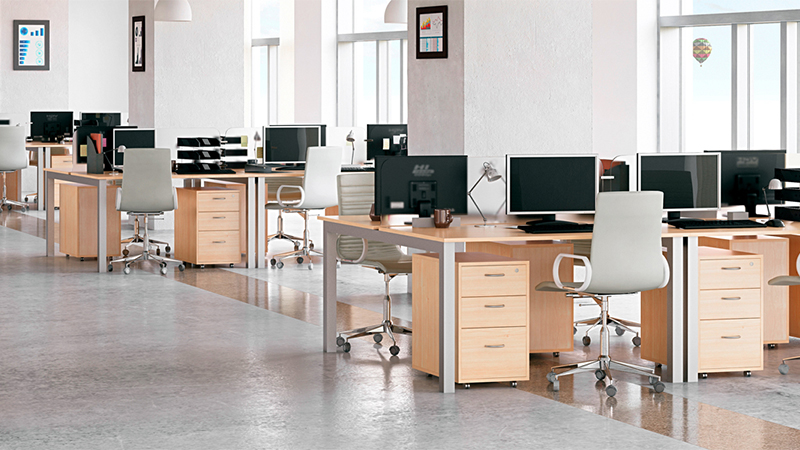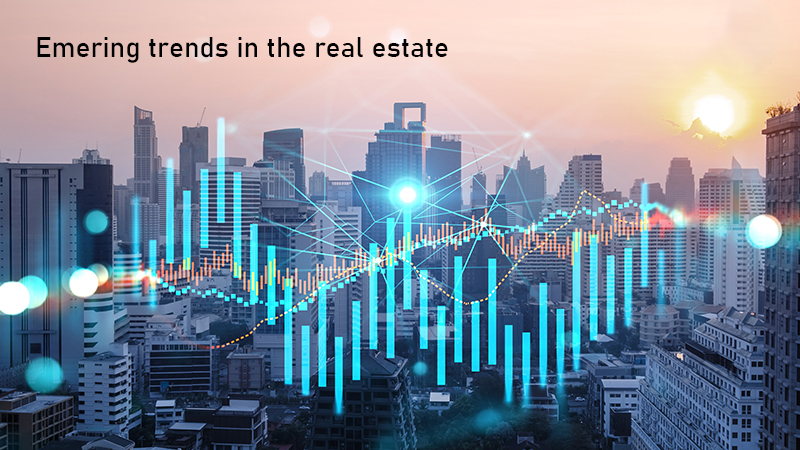

How Sustainability is Redefining Real Estate
Sustainable infrastructure is important to India's long-term development, playing a considerate role in addressing environmental challenges, boosting economic growth, and enhancing the quality of life for its citizens. The Indian real estate sector, a major giver of the country's economic growth, is undergoing a significant transformative journey. Driven by pressing environmental concerns, a relentless focus on wellness, and shifting consumer preferences, sustainability is no longer a peripheral consideration – it's quickly becoming the new standard. This transformative shift is redefining the industry, profoundly impacting everything from design and construction practices to the valuation and utilization of commercial properties in Noida and the surrounding areas.
The Sustainability Mandate
In today’s world, climate change is very much implicated in the global challenge, and the real estate vertical is one of the notable contributors to greenhouse gas emissions. Structures/ buildings account for a substantial portion of energy consumption and resource use. Here’s where sustainability comes in:
- Power Efficiency: Sustainable buildings now prioritize energy-saving features like solar panels, cool roofs, and high-performance windows. This not only eliminates the need for a building’s carbon footprint but also transmits lower operational costs for tenants and even building owners.
- Green Building Standards and Certifications: It includes LEED (Leadership in Energy and Environmental Design) in which Buildings are devised to meet explicit energy efficiency, water usage, and material sourcing standards.
- BREEAM (Building Research Establishment Environmental Assessment Method): Another hugely acknowledged certification emphasizing sustainable installation practices.
- Resource Conservation: Water-saving spouts, rainwater harvesting techniques, and efficient landscaping practices minimize resource consumption. Sustainable expansions also prioritize responsible waste management processes.
- ESG (Environmental, Social, and Governance) Criteria: Investors are increasingly considering ESG factors in their investment decisions, driving demand for sustainable real estate.
- Sustainable Materials: The use of recycled and locally sourced materials in the construction vertical minimizes environmental impact and reduces transportation-related emissions. Further, sustainable construction often incorporates non-toxic materials to ensure occupant health and well-being.
The Economic Benefits of Green
Sustainability isn't just good for the surroundings; it's good for business too. Here's how:
- Increased Property Value: Studies show that sustainable buildings often cost higher rents and sale prices. It’s because of lower operating costs, tenant/buyer demand for eco-friendly spaces, and potential tax benefits associated with green certifications like LEED (Leadership in Energy and Environmental Design).
- Fazed Tenants and Investors: Investors are increasingly prioritizing sustainability in their portfolios, and buildings with green certifications are demonstrably more attractive. Similarly, tenants are drawn to features that improve health and well-being, a key focus of sustainable design.
- Downsized Long-Term Costs: Energy and water efficiency rephrase to lower utility bills, creating long-term financial benefits for building owners.
Building a Thriving Community Around Us
Sustainability extends outlying the building itself and plays an essential role in shaping vibrant communities. Here's how:
- Improved Health and Well-being: Sustainable buildings often feature better ventilation, natural light, and access to green spaces. These elements contribute to occupant health and well-being, fostering a more productive and comfortable work environment.
- Creating Vibrant Communities: Developments on the cusp of sustainability may incorporate mixed-use spaces, walkable areas, and easy access to public transportation. This fosters a sense of community, reduces reliance on cars, and creates a more livable atmosphere.
- Resilience in a Changing Climate: Design with terms of sustainability can incorporate elements to better withstand extreme weather circumstances, becoming increasingly important as climate change advances.
The Indian Context: A Greener Future for Noida
Noida, a major commercial hub near Delhi, is witnessing a surge in sustainable real estate development so far. Best Developers in India like Bhutani Group are leading the charge with innovative projects that focus on energy efficiency, resource conservation, and healthy workspaces. These developments are not only drawing environmentally conscious tenants but are also redefining the landscape of luxury commercial investment in Noida and around.
Looking Forward: The Future of Sustainable Real Estate Industry
As sustainability becomes the norm, we can expect to see further advancements in:
- Smart Technologies: Integration of smart building technologies that optimize energy use, water management, and overall building performance analysis.
- Circular Economy Principles: A shift towards a circular economy in construction, where materials are reused and recycled to minimize waste.
- Regenerative Design: Design that goes beyond minimizing negative impacts and actively contributes to environmental restoration.
Sustainable Infrastructure is a Key to India’s Future!
Sustainable infrastructure is important to merging India’s future, serving as a cornerstone for environmental sustainability, economic growth, and societal well-being. By investing in renewable energy, green buildings, and efficient public transportation, India can significantly reduce its carbon footprint and enhance climate resilience. This approach not only discourses pressing environmental pitfalls but also stimulates economic growth by attracting green financing and creating employment in emerging sectors like clean energy and smart integrated technologies.
Moreover, sustainable infrastructure promotes public health by improving air quality and ensuring access to clean water, while enhancing urban livability through the development of green spaces and smart cities. Guidelines supporting these initiatives, coupled with incentives for green projects, highlight the government's commitment to a sustainable tomorrow. In essence, sustainable infrastructure is pivotal for India to achieve balanced and inclusive development, securing a greener and more thriving future for all its citizens.
The Way Forward- by Bhutani Group!
Sustainability is no longer an optional add-on but a rudimentary aspect of modern real estate development. By integrating sustainable practices, the real estate industry not only contributes to environmental conservation but also meets the evolving demands of investors, regulators, and clients. This shift is leading to more resilient, efficient, and livable spaces that will define the future of real estate.
For India's real estate sector to thrive in the future, embracing sustainability is no longer optional but is quintessential. Best Real Estate Companies in India must prioritize green practices throughout the development lifecycle, from planning and construction to function and maintenance. By joining hands – developers, investors, tenants, and policymakers – we can create a more sustainable and resilient real estate landscape for generations to come.
Considering investing in commercial, retail properties in Noida? Look for developers with a strong commitment to sustainability like Bhutani Group Noida’s prestigious realty giant. Not only will you be making an environmentally conscious choice, but you'll also be investing in a property that offers long-term value and a positive impact on the community.









Leave a comment
All fields marked with an asterisk (*) are required